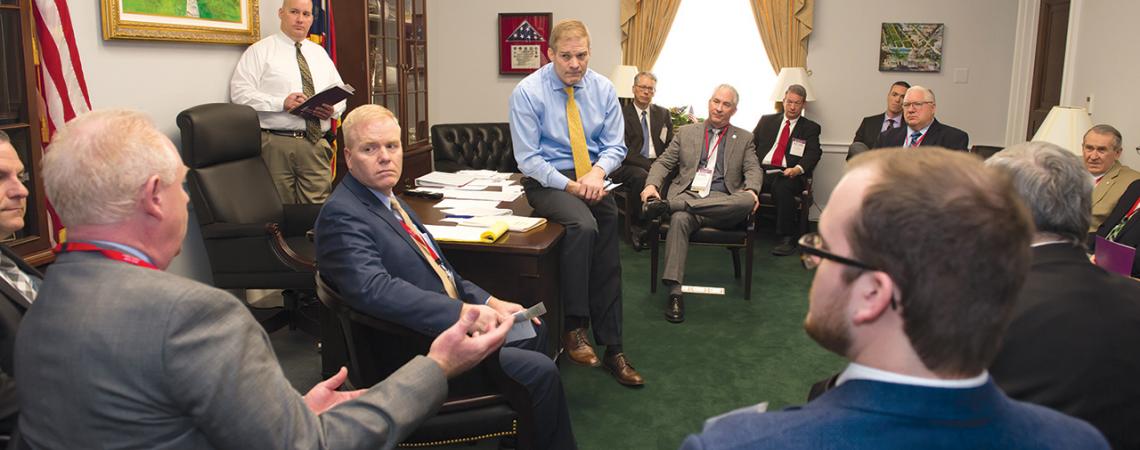U.S. Rep. Jim Jordan listens to a point during a meeting with leaders from Ohio electric cooperatives during the 2018 legislative conferences in Washington, D.C.
Ohio electric cooperative leaders joined more than 2,000 of their counterparts from around the country in April to discuss legislative and regulatory concerns with members of Congress at the 2018 NRECA Legislative Conference in Washington, D.C.
The conference, held annually, allows co-op leaders to build relationships with policymakers that improve their members’ lives every day.
“These relationships are good for the cooperatives and each of their members, and they’re good for our elected representatives,” says Pat O’Loughlin, CEO of Ohio’s Electric Cooperatives, the statewide association that provides services to 25 member cooperatives around the state. “There are issues that affect all of us, and our representatives are giving of their time and efforts to make sure they hear what we have to say.”
At one point, Rep. Jim Jordan, from Ohio’s 4th District, who is chairman of the House Oversight and Government Reform Subcommittee on Health Care, Benefits, and Administrative Rules, literally turned over the gavel to a colleague during that subcommittee’s session so he could join a large Ohio contingent in his Rayburn House office.
It’s that type of engagement that has helped secure $600 million for rural broadband loans and grants from the U.S. Department of Agriculture in the omnibus spending bill that was passed by Congress in March. That bill also included $5.5 billion for the federal electric loan program, funding for continued cybersecurity research, and provisions streamlining vegetation management on federal lands — all of which are issues cited as among the most important to electric cooperatives by the National Rural Electric Cooperative Association.
At the April session, the farm bill, which was expected to come before Congress in mid-May, was front and center in meetings with legislators, according to Marc Armstrong, director of government affairs at Ohio’s Electric Cooperatives.
“The rural broadband funding in the omnibus was a good down-payment, but there’s a lot more that needs to be done,” Armstrong says. “The farm bill isn’t just about agriculture — it’s also a rural development bill, and must include support for programs that improve the quality of life for rural Americans.”









